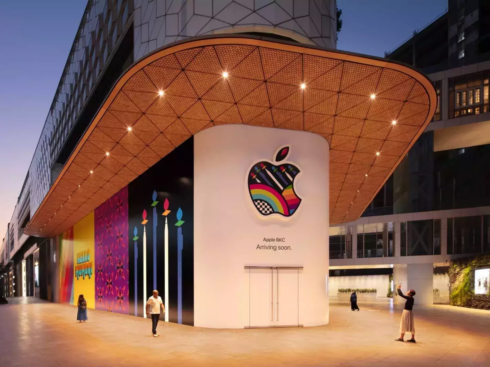
[Note: This article is part of The Junction Series. Get a deep dive on innovations in the Indian startup ecosystem. Learn more about The Junction here!]
Bhavin Turakhia, co-founder of the technology group Directi believes that there were three major inflexion points in his journey towards building his conglomerate of tech companies with current revenues of up to $300 Mn. And it’s no surprise that the first one had something to do with computers.
“I studied at Arya Vidya Mandir School in Bandra, Mumbai. I was in 6th standard when our school became one of the first schools in the city to install a full-fledged computer room with 13 computers, and made it an elective subject that was available to everybody. If that hadn’t happened I would have probably had a very different journey.”
For Bhavin – who has always loved maths, physics, logical puzzles – computers were a natural progression. So it was, as he says, love at first sight. He would spend his lunch breaks, free periods, and three hours after school in the lab coding, courtesy his computer teacher who would leave the keys with him.
In many ways this decision was instrumental in setting him on the path he walks on, even today. Adding fuel to this fire, he had devoured 30-40 books on coding and the biographies of every company he could lay his hands on – be it Apple, Microsoft, Oracle, Intel, McDonald’s, Chrysler – pretty much everything. This knowledge, coupled with his father encouraging him and younger brother Divyank enabled his entrepreneurship journey. It was just the kickstart the duo needed.
Lastly, in 1993, when the Internet first came to India and Bhavin experienced it for the very first time – it sealed the deal. He was hooked.

“I knew this was going to be a game changer. I knew that whatever I had to do would be surrounding the Internet in some form,” he shares.
And such has been the case with not one, not two, but 11 businesses started from scratch in the Internet domain – from web hosting and domain name to starting a reseller business, to adtech and communication – of which Flock, an enterprise communication and collaboration service, is his latest passion.
Building An Enterprise Value Of $1.2 Bn From INR 25K
The Turakhia brothers have been looking to make a mark for themselves, ever since they began Directi in 1998.
Back in 1996, there were roughly 30K-40K Internet users in the country. Those were the times when Internet connections would get disconnected often and modems provided lousy speeds. It was during those times when, fired with the idea of entrepreneurship, the brothers started writing software for other people, selling software, and assembling machines in the early days of their college.
For a year, Bhavin tried his hand at developing software in the online job hunting space. But when that didn’t work, armed with an INR 25K loan from their father for buying their first server, the brothers got into the business of selling server space and website space with Directi.

While the Internet was fairly new, it was growing manifold with people starting to get in on the bandwagon by using email and websites. So when the duo started, Bhavin leveraged the contacts he had made while trying to peddle his prior software venture for selling them hosting and web space. At that time, there were hardly five to six firms that were providing these services, so Directi managed to get a reasonable traction in the beginning.
Recounts Bhavin, “In the first quarter itself, we had made enough money to pay back the loan as well as to sustain for subsequent quarters as well. In the first year, we made a turnover of around INR 5 Lakhs, which was a big amount of money for us back then. And it kept growing to 20-30 times in the initial years.”
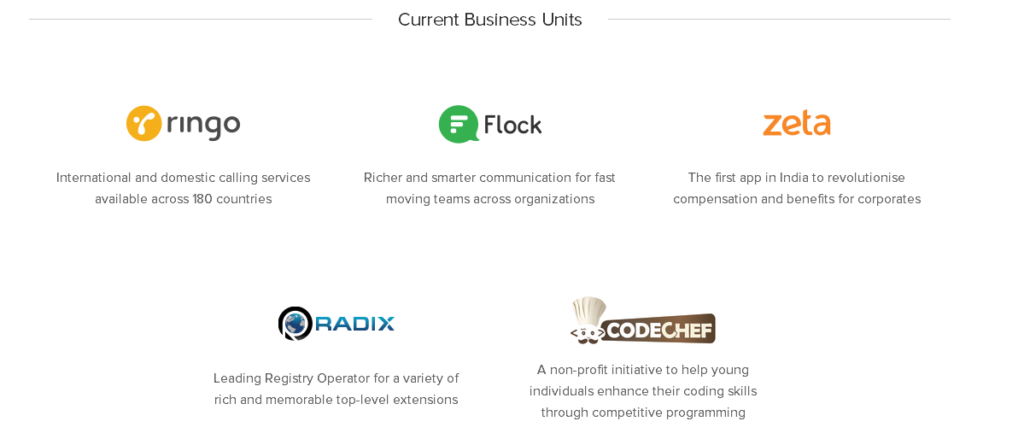
The next big boost came when Directi became the first ICANN (Internet Corporation for Assigned Names and Numbers) accredited domain registrar in 2001, in India. He remembers the one incident in particular which led to this happy occurrence. At a NASSCOM conference, the duo was selling domain names coupons of denomination as low as INR 600. “We had printed some 15K coupons. By the end of the conference, they were strewn all over the ground. We sold so many domain names in that conference and that’s what funded our ICANN accreditation.”
After that, there was no looking back. The duo then started the Reseller Club unit in 2002 and started signing resellers all over the world by building a comprehensive reseller platform. At their peak, they had 50K resellers as partners who were buying domain names and hosting space from them and selling it globally.
The idea behind this foray was simple – to transact with the bigger Internet markets in the world.
The idea behind this foray was simple - to transact with the bigger Internet markets in the world.
Explains Bhavin, “The Indian market was small, still smaller compared to US and China. Our perspective was that the products can be sold anywhere. Our core competence is technology. We are really good at technology. But we can’t set up offices in 50 places. The best way to do that in countries where we don’t know the language or the culture or don’t have a bank account or any support either was to appoint resellers who can buy from us and sell ahead.”
Most of the resellers were other hosting companies or other web design companies. Besides Reseller Club, the duo also started other web presence businesses – such as business automation technology and consulting solutions provider LogicBoxes (2003), WebHosting.Info (2003) which provides statistics and research data about the web services industry, and hosting provider BigRock (2008). So while the duo started off as the 200th registrar in the world, when they sold these web presence companies to Endurance International Group in 2014, they had become the fourth largest worldwide, number one in Asia and the only Indian origin company to be in the top five rankings.
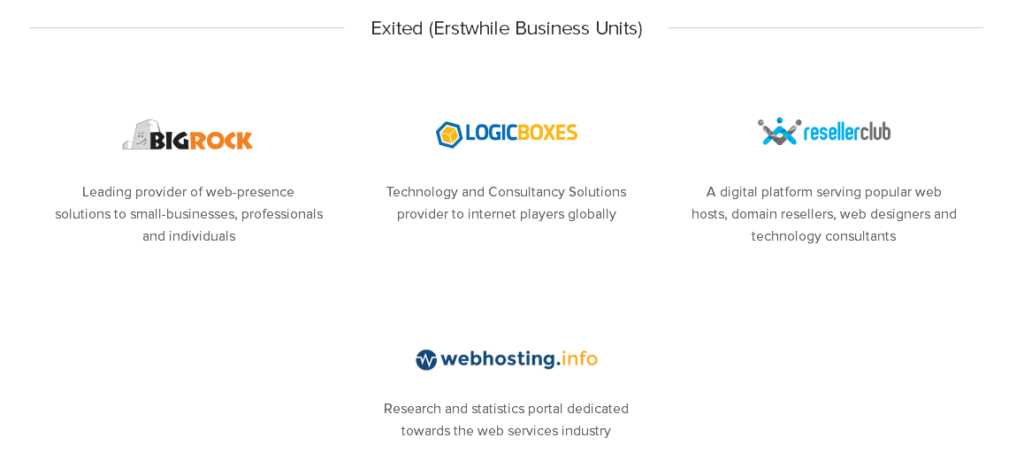
It was somewhere in 2006 when they entered the online advertising vertical through a business called Skenzo – which was largely a US-focussed business based in Dubai. Divyank took over that business and converted it into adtech platform Media.net and started selling contextual advertising to any sort of website. It became the number two contextual advertising platform after Google, which was snapped up by a Chinese Consortium in an all-cash transaction valued at about $900 Mn.
Radix – an Internet domain registration company, followed in 2012 when Bhavin collaborated with two ex-Mckinsey consultants and two other people, creating 600 business plans! He says,
“Radix is in the top level domain space, so we own .store, .tech, .website, .online, .space, .host, .press. We own perpetual rights to these extensions. Anyone who wants to register domain names in these extensions does it through a registrar and it goes into our registry. As we have the registry license, we charge per domain an annual fee.”
Till date, over 3.2 Mn domain names have been reportedly registered through Radix. The group of companies owned by the brothers together meanwhile has over 9 Mn customers, with revenues of over $300 Mn and a group enterprise value of over $1.4 Bn. So, while Bhavin currently takes care of Ringo, Zeta, CodeChef (a non-profit educational initiative of Directi), and Radix, Divyank, who is based out of the US, takes care of Media.net, which is not a part of the Directi Group but leverages the Directi brand and culture for its India offices.

Bhavin’s current passion, though, is his enterprise messaging platform Flock.
“I Am Personally Very Passionate About Organisation Productivity”
Flock was launched in 2014. It is one of the four ventures in which the Directi Group is planning to invest $110Mn – the other three being calling app called Ringo; an Internet domain-name registration company Radix; and a mobile-based meal voucher platform Zeta.
The newest version of the app allows users to create cross-functional, cross-company teams. Explains Bhavin, “We have this notion of teams where you can create your own team. A team can be a company, a department, or a community etc. Give it a team name and each team gets its own page. Earlier, Flock could largely be used for communication within the same company as it was based on a common email address. But now you can go across companies working on a common project to connect. One can easily switch between teams and it’s extremely fast.”
So fast that he claims that it is almost 2.5x faster, slicker than nearest rival Slack. “Slack looks like a coding interface – very noisy and cluttered in comparison. So UI is one big area that we focussed on.”
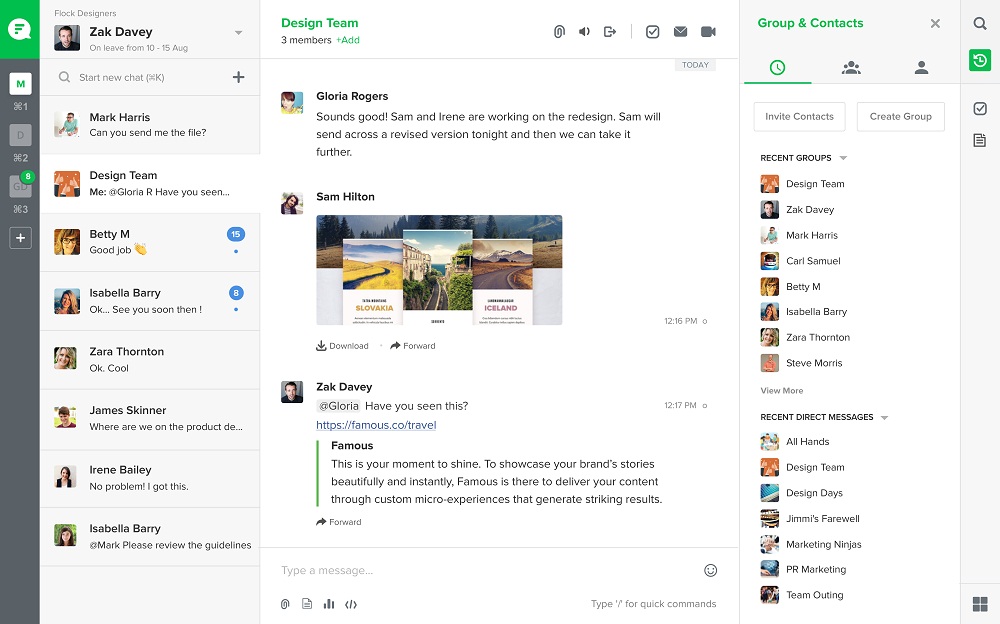
Flock also has an App store. These apps can be integrated with other apps or Google Drive or Twitter. People can also add their apps on top of Flock. He adds that apps are a first class citizen in Flock. In Slack, the only thing apps can do is send messages and receive messages. In Flock, apps get their own side panel and have much more prominence.
But what prompted him to launch Flock when there is already a strong competitor like Slack in the market?
“Slack is an interesting story but it’s like asking why Facebook launched a messenger when Whatsapp was already there, and why did Whatsapp launch when BBM was there, and why did BBM launch when Yahoo!, MSN were there? There are four-five main players now in the messaging space -WeChat in China, FB messenger, Whatsapp, and Skype. All these are country dominant, used by roughly 2 Bn people worldwide who use messaging. If you look at enterprise messaging, the market has probably a billion users, potentially. Right now, combined between us, Slack, and everyone else in the market, there are 3-5 Mn users using enterprise messaging. So the market is still nascent,” he says.
But the real reason for him to look at this space stems somewhere from the fact he is personally very passionate about organisation productivity, in general. And one of the main lifeblood of organisation productivity is communication. He explains,
“In most organisations, developed or developing countries, a large part of communication is over email. And email is not very conducive to communication or collaboration. It’s a protocol that was created 25 years ago with clients who do the same thing as they did, 10 years ago. There’s not a significant amount of innovation in there. So we created a communication platform where there is instant messaging and work can happen in collaboration. Flock is literally like an operating system. You can bring in messages/ notifications from your servers, you can bring in notifications from your project management systems, and you can send stuff outbound – the one hub where all your communication/collaboration needs gets served.”
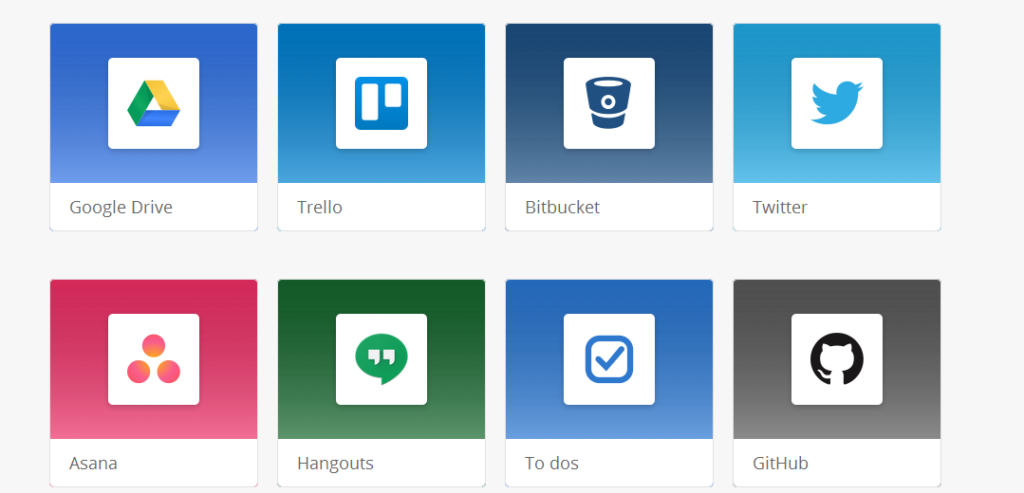
Bhavin claims that his organisation has conducted surveys where customers have reported up to 30% increase in productivity post using Flock. “Imagine the repercussions for a knowledge-based company, where your largest value is your employee and their time. If each of the employees can produce 30% more than what they are producing, you have actually increased the value of your company by 30%. It’s a sizeable proposition. So it’s an area which will make a significant change across the globe.”
And it is with this thought in mind that Flock is aiming to take a big shot at the market. Currently, it claims to have registered a total number of app downloads in the range of 300K, is being used by more than 25K companies globally, with 40K-50K active users at any given point in time. Some marquee clients include Voonik, Gini & Jony and 1mg in India, Phase 2 Medical in the US, and Tim Hortons in Canada. But Bhavin is targeting to enrol a highly ambitious number of 1 Mn active users in the coming year, and it is in this direction that a major portion of the funds would be deployed in marketing efforts globally across the next year.
“I Pick Areas Which Haven’t Seen Innovation In A Long Period Of Time”
Given the vast reach and expanse of the Internet domain, Bhavin’s way of choosing an area to be part of is driven by one major thing – innovation.
He further explains, “I pick areas which haven’t seen innovation in a long period of time and where existing incumbents are not very innovative and status quo has not changed. If you look at enterprise communication, the last innovation in enterprise communication was email. After email, you can’t name one innovation which has dramatically changed communication landscape for teams and messaging. I pick up these spaces where I feel there is a gap.”
Given the vast reach and expanse of Internet domain, Bhavin’s way of choosing an area to be part of is driven by one major thing - innovation.
But doesn’t the presence of big competition deter him and Divyank?
“Pretty much every business we started in, we were competing with large, established players. We have always picked spaces that we felt we can make an impact in. When we started off as a website and domain registrar we were the 200th registrar, there was Network Solutions, GoDaddy, etc. Similarly, online advertising space is a $150 Bn market and in the contextual advertising space, there is only one player, Google, which doesn’t make sense. Hence the Media.net foray. In messaging there’s Google, Microsoft, and Slack. Competition is a given in a large enough market. But then no matter the competition, if you create value, you will also be able to build your business,” he explains.

“We have never thought of it as Google is in this space, so let’s stay away from it. Quite the opposite, actually. If Google is also working in the space we are starting in, then we have chosen correctly because they won’t pick up something that wasn’t a multi-billion dollar space. And that’s the way we want to look at our businesses.”
It is with this thought that the duo has successfully created 11 new businesses and that too, all bootstrapped ones. While Bhavin does not advocate that being bootstrapped is “the way” to go for everyone, he believes that being bootstrapped has ensured that all their spends are well-thought through. Hence, their businesses have stayed away from copying business models from the US or from throwing money at customers for acquisition. He adds,
“Our spend priority is people, product, and then promotion. Everything else comes later.”
Our spend priority is people, product, and then promotion. Everything else comes later.
Having been in business in the Internet space for almost 18 years, Bhavin believes that as far as the Internet is concerned, India hit the tipping point in 2014. He says, “Any country that you look at, they hit the tipping point, as far as Internet and Internet businesses are concerned, when more than 30% of it has adopted the Internet. Then you see everything suddenly jumping onto it. India crossed that point 1.5 years ago. Once you cross that point, suddenly Internet is not a luxury. If only 10% of the country is on the Internet, as a business you can afford to not take it seriously, as 9/10 of your customers are not online. But when 3/10 or 4/10 customers are online, you can’t afford to not take it seriously. Going forward, we will start seeing some rapid growth with increasing internet penetration, especially with Reliance Jio on the scene”.
And what has been his biggest motivating factor all through these 18 years of change?
“I live by one fundamental idea – it’s our moral obligation to make an impact directly proportional to our potential. So whatever I do in my life is based on this desire to make a big impact throughout my life. All of this is governed by that principle.”
And for an entrepreneur, who wants to succeed at a scale like him, his advice focusses around the same – creating value.
“I always say, focus on creating value, not valuation. Valuation is a side effect. I am more concerned with creating a difference. The moment you are creating value, you have a business model which can be scaled to success. If you can create value for 10 people, you can create value for 10,000.”
Also, he cautions that money should be spent first on hiring the right people, then the product, and last on proportion.
He aptly concludes, “The worst thing you can do to fail is to compromise on the quality of the talent you hire.”
Coming from someone who has succeeded at such an unprecedented scale, those words are worth their value and not valuation in gold!








